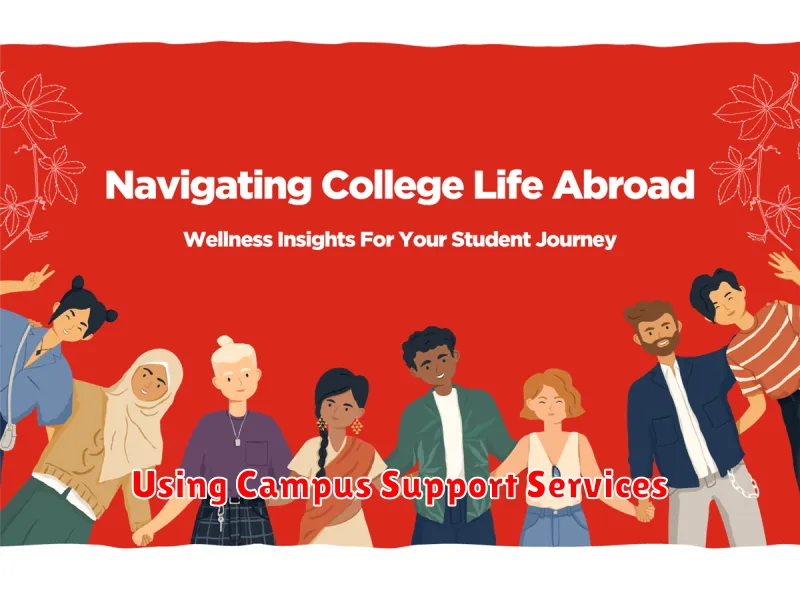Embarking on a college life abroad is a transformative experience, filled with both exhilarating opportunities and daunting challenges. Successfully navigating this new chapter requires careful preparation and a willingness to adapt to unfamiliar surroundings, academic systems, and cultural nuances. This article provides invaluable tips for adjusting to college life abroad, addressing crucial aspects such as cultural adaptation, academic success, and personal well-being. Whether you’re concerned about homesickness, language barriers, or making new friends, these guidelines will empower you to thrive in your new academic environment and embrace the enriching journey of studying internationally.
From understanding the local customs and traditions to managing finances and building a support network, adapting to a foreign academic landscape can be demanding. This guide offers practical advice to help you overcome common obstacles faced by international students, enabling you to confidently embrace the challenges and rewards of studying abroad. By focusing on key areas such as housing, healthcare, and social integration, these tips for adjusting to college life abroad will equip you with the essential tools for a successful and fulfilling international student experience.
Cultural Shock and How to Cope
Experiencing cultural shock is a common aspect of living abroad. It’s characterized by a range of emotions stemming from encountering unfamiliar customs, languages, and social norms. Understanding this process is the first step towards successfully adapting to your new environment.
Common symptoms can include feelings of disorientation, homesickness, frustration, and even anxiety. These feelings are entirely normal and usually subside as you become more acclimated.
Coping Strategies
- Embrace the new culture: Be open to trying new foods, learning local phrases, and participating in cultural events. This will help you integrate and appreciate the differences.
- Maintain connections with home: Staying in touch with family and friends can provide a sense of comfort and support during this transition.
- Find a support network: Connect with other international students or join student clubs related to your interests. Sharing experiences and building relationships can alleviate feelings of isolation.
- Practice self-care: Ensure you’re getting enough sleep, eating nutritious meals, and engaging in activities you enjoy. Maintaining your physical and mental well-being is crucial during this period.
Building a Social Network

One of the most important aspects of adjusting to college life abroad is building a strong social network. This can alleviate feelings of homesickness and isolation, and contribute to a more enriching experience overall.
Engage with classmates: Participate actively in class discussions, group projects, and study sessions. These interactions can naturally lead to friendships and valuable academic support.
Join clubs and organizations: Explore clubs and organizations that align with your interests, whether they be academic, social, or cultural. This is an excellent way to meet like-minded individuals and become involved in campus life.
Attend university events: Universities frequently host events for international students. Take advantage of these opportunities to meet new people and learn about the local culture.
Utilize university resources: Many universities offer support services for international students, including social events and mentorship programs. Reach out to these resources to connect with other students and gain valuable guidance.
Budgeting and Managing Expenses

Managing your finances wisely is crucial for a successful experience abroad. Creating a realistic budget is the first step. Track your spending diligently. Use budgeting apps, spreadsheets, or even a simple notebook to monitor where your money is going.
Open a local bank account if possible. This can simplify transactions and reduce fees associated with using your home bank cards. Research different banking options and choose one that best suits your needs.
Explore student discounts. Many businesses offer discounts to students, so always carry your student ID. Take advantage of these opportunities to save money on everything from transportation to entertainment.
Be mindful of currency exchange rates. These rates can fluctuate, impacting your spending power. Keep track of the exchange rate and factor it into your budgeting calculations.
Staying Connected with Family
Maintaining strong ties with family while studying abroad is crucial for emotional well-being. Regular communication is key to bridging the distance. Establish a communication schedule that works for both you and your family, considering the time difference.
Utilize various communication methods. Video calls offer a more personal connection, allowing you to see and interact with your family face-to-face. Phone calls are a convenient option for quick updates. Messaging apps and email provide platforms for sharing photos, videos, and everyday experiences.
Beyond scheduled communication, share spontaneous moments. Send a quick text about something interesting that happened during your day, or share a photo of a new place you discovered. These small gestures help maintain a sense of connection and involvement in each other’s lives.
Learning the Local Language
Immersing yourself in the local culture is key to a successful experience abroad. One of the most effective ways to do this is by learning the local language. Even basic conversational skills can significantly enhance your daily interactions, from ordering food to asking for directions.
Consider enrolling in a language course at your university or a local language school. These structured learning environments provide a strong foundation in grammar and vocabulary. Supplementing formal study with everyday practice is crucial.
Engage with native speakers as much as possible. This could involve joining student clubs, volunteering in the community, or simply striking up conversations with shopkeepers or classmates. Don’t be afraid to make mistakes; they are a natural part of the learning process.
Balancing Study and Exploration
One of the most exciting aspects of studying abroad is the opportunity to explore a new culture. However, it’s crucial to strike a balance between immersing yourself in your new surroundings and maintaining your academic performance.
Time Management is key. Create a realistic study schedule that allows for both academic pursuits and exploration. Designate specific times for studying, attending classes, and completing assignments. Treat these times with the same seriousness you would a work commitment.
Prioritize your studies. While exploring is tempting, remember your primary reason for being abroad is your education. Ensure that your studies remain your top priority. Avoid procrastination and manage your time effectively to avoid falling behind.
Weekend Exploration. Consider dedicating weekdays primarily to academic work and reserving weekends for exploring your new city and country. This allows you to fully enjoy your experiences without the pressure of impending assignments.
Leverage your resources. Utilize university resources such as academic advisors and student support services. They can offer valuable guidance on balancing academics and extracurricular activities, as well as provide support for any challenges you may encounter.
Using Campus Support Services

Adjusting to a new academic environment, especially in a foreign country, can be challenging. Utilizing campus support services is crucial for a smoother transition. These services are designed to assist international students with various aspects of college life.
Academic advising can help you navigate course selection, degree requirements, and academic policies. International student offices provide guidance on visa regulations, cultural adjustment, and practical matters like opening a bank account. Don’t hesitate to reach out to these offices for assistance.
Many universities also offer counseling services to address mental health and emotional well-being. Adapting to a new culture can be stressful, and these services can provide valuable support. Additionally, language support programs can help you improve your language skills and succeed in your studies.

